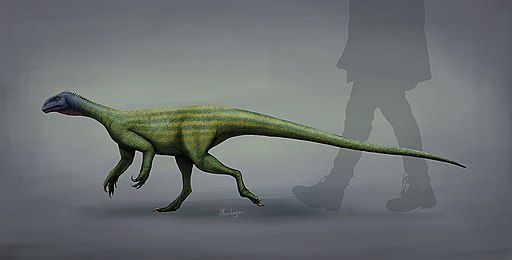The Early Prosauropod
Thecodontosaurus was a small, herbivorous dinosaur that lived during the Late Triassic period, approximately 205 million years ago.

| Meaning | Socket-toothed lizard [Thec-odont-o-saurus] |
| Pronunciation | THEE-koh-don-toh-sore-us |
| When: | Late Triassic (about 205–201 million years ago) |
| Where: | Europe (United Kingdom) |
| What: | Sauropodomorph (herbivorous) |
| Weight: | Estimated around 10–20 kg (22–44 pounds) |
| Length: | Approximately 2 meters (6.5 feet) |
| Diet: | Herbivorous (ate plants) |
| Discovered: | First described by Henry Riley and Samuel Stutchbury in 1836 |
Found in what is now Bristol, England, Thecodontosaurus is one of the earliest known dinosaurs.
It belonged to a group called prosauropods, which were early ancestors of the giant sauropod dinosaurs.
Measuring about 2-3 meters (6.5-10 feet) in length and weighing around 150 kilograms (330 pounds), Thecodontosaurus had a slender body, long neck, and tail.
It likely walked on all fours and fed on plants and vegetation. Its teeth were adapted for chewing tough plant material, suggesting it had a specialized diet.
